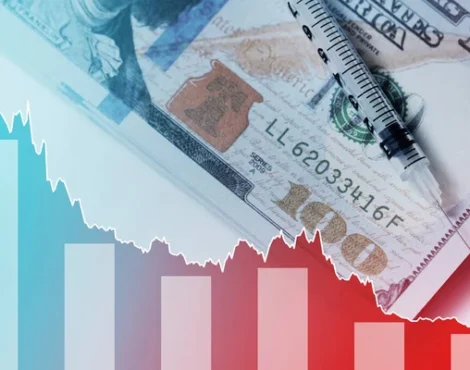Central banks play a crucial role in shaping the global economy, particularly through their interventions in the foreign exchange (forex) markets. These interventions are designed to achieve various monetary policy objectives, such as stabilizing exchange rates, promoting economic growth, and controlling inflation. Understanding how central bank policies impact forex markets is essential for forex traders seeking to navigate the complexities of the global currency market.
Central Bank Interventions in Forex Markets

Central banks intervene in the forex market by buying or selling foreign currencies to influence exchange rates. These interventions can take various forms, such as direct market operations, verbal interventions, or implementing interest rate policies. Central banks may intervene to prevent excessive currency volatility, support export competitiveness, or address imbalances in the economy. The timing and size of these interventions can have a significant impact on currency exchange rates.
Impact of Central Bank Policies on Currency Exchange Rates

Central bank policies can have a profound impact on currency exchange rates. For example, when a central bank increases interest rates, it can attract foreign capital inflows, leading to a stronger currency. Conversely, lowering interest rates can weaken a currency as investors seek higher returns elsewhere. Central bank interventions can also influence investor sentiment, market expectations, and overall market liquidity, all of which can impact currency exchange rates.
Strategies for Trading Forex amidst Central Bank Actions

Forex traders can employ various strategies to navigate central bank interventions in the forex market. These may include technical analysis to identify trends and patterns, fundamental analysis to assess economic indicators and central bank policies, and sentiment analysis to gauge market sentiment and positioning. Traders may also consider using stop-loss orders and risk management techniques to mitigate potential losses during periods of heightened market volatility.
Analyzing Central Bank Announcements for Forex Traders

Central bank announcements are key events that can significantly impact currency exchange rates. Forex traders closely monitor central bank statements, monetary policy decisions, and economic forecasts to anticipate market movements. Understanding the implications of central bank announcements and reacting swiftly to new information is essential for successful forex trading amidst central bank actions.
Role of Central Banks in Influencing Foreign Exchange Rates

Central banks play a crucial role in influencing foreign exchange rates through their monetary policy decisions and interventions in the forex market. Central banks can use various tools, such as interest rate adjustments, quantitative easing, and currency interventions, to achieve their policy objectives. By influencing exchange rates, central banks can affect trade flows, inflation levels, and overall economic stability.
Practical Tips for Navigating Central Bank Interventions in Forex Trading

- Stay informed about central bank announcements and be prepared to react quickly to market-moving events.
- Monitor key economic indicators and central bank policies to anticipate potential shifts in currency exchange rates.
- Diversify your forex trading portfolio to mitigate risks associated with central bank interventions and market volatility.
Comparison Table: Central Bank Interventions
| Intervention Type | Objective | Impact on Currency Exchange Rates |
|---|---|---|
| Direct Market Operations | Stabilize exchange rates | Immediate impact on currency values |
| Verbal Interventions | Influence market sentiment | Expectation-driven movements in exchange rates |
| Interest Rate Policies | Manage inflation and growth | Long-term impact on currency strength |
In conclusion, central bank policies play a significant role in shaping forex markets and influencing currency exchange rates. By understanding how central banks intervene in the forex market, traders can better navigate market volatility and make informed trading decisions. By staying informed about central bank actions, analyzing market trends, and implementing sound trading strategies, forex traders can effectively respond to central bank interventions and achieve success in the dynamic world of forex trading.



